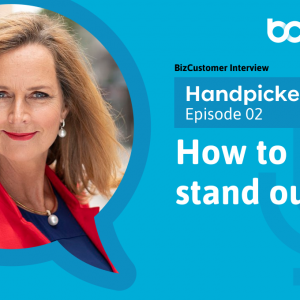Are you considering starting your own business? Are you truly ready? Before you start a self-employed venture, know it is essential to have an entrepreneurial spirit and limitless passion. You also should be willing to work alone, perhaps for longer hours than you would in a traditional 9-to-5 job.
So, how do you start self-employment? The first thing to note is that self-employment is different to simply starting a business. You are self-employed if you operate as an independent contractor or sole trader without any other employees. Essentially, you are the business.
After you’ve decided that working for yourself is the right path for you, you will decide what type of business you want to start. Some entrepreneurs turn a hobby into a profitable business. However, knowing the difference between business and hobby is important when it comes time to pay taxes.
1. Limit your time
It’s not necessary to work into the early hours just because you are working from home, or your mobile number is your business number. Just like in a normal job, aim to stick to a set schedule for both you and your clients. Close your work email and turn off your work phone when you finish your working day. Avoid switch them on again until the beginning of the following business day.
2. How to manage your money well
When you do not receive regular deposits into your account from an employer, such as weekly, monthly, or fortnightly, it can be very easy to overspend without even knowing it. As a self-employed individual, you need to make money, but equally critical to your success is how you manage your money.
If sales are not great, you may not have the money to cover expenses. You might also not be able pay your taxes on time if you don’t receive regular income. Don’t hesitate to seek help if you’re having difficulty managing your finances. It is cheaper to ask for help than it is to make a mistake on your own and then try and fix it.
3. Know what you want
When you start self-employment and are in the swing of things working for yourself, it’s critical that you have a clear goal you are working towards. You can work hard and acquire skills but never achieve your full potential. Instead, define your ultimate business goal and ensure that all of your actions are aligned towards that goal. If you are struggling to define your business goals, it may mean that you need to pivot your business.
4. Be Yourself
Small business owners may be tempted to make themselves appear larger or more corporate. It may work for you, but remember that you are self-employed, and your unique personality is a huge part of your business. As a sole-trader, you are the business.
5. How to write a business plan
In a business plan you describe your product, how you plan to sell it, and how your business will make money. You also describe your costs and how you will cover them. A business plan is especially important if you are applying for business loans or grants. You can create a business plan even if you are self-employed. It will help to provide direction and strategy for your business.
6. Find a business mentor
You can learn more from the mistakes of others and avoid making the same mistakes yourself by engaging a business mentor. Business mentors can provide timeless business advice, business tips and help you uncover new strategies for business success. They may even connect you may even offer to connect you to their widespread business network.
As such, you may consider seeking out leaders in your industry and asking if they would be willing to be your mentor. They will surely have some hard-won lessons
7. Set business goals
Short-term goals can help you feel like you’re making progress. These goals can be used as stepping stones to achieve your long-term goals. You should write down all your goals for your business, then review them regularly and make any necessary revisions. Goals may include sales per year or the number of clients and products.
8. Assume that you are competing – even when you’re not
Even if your competition isn’t fierce, you can benefit by always managing your business like it does have stiff competition. This will push you to run your business more efficiently and help you to retain clients when you face new competition.
9. Keep your costs down
Overheads are the costs to run a business, such as rent, office supplies, and equipment. It’s important for all businesses to try and keep costs low, but this is especially true for self-employed individuals who are just starting out.
10. Plan carefully and proceed slowly
Remember the business plan that you created at the beginning? Go back to the plan before you make any changes in your business. Be sure that the change is justified and think about all possible consequences. Growth is important, but too much growth can be detrimental. You may lose customers or your reputation if you experience quality problems and delays.
11. Working from home
In the early stages of your business, working from home can help you reduce your costs. But remember that working from home isn’t free. You will still need to buy a decent computer, have a fast internet connection, as well as office supplies, marketing materials, as well as business essentials such as business insurance*, including self-employed insurance
Are you looking for ways to reduce your self-employed risk?
Being your own boss is a fantastic feeling – especially when your self-employed business is humming on all cylinders. That said, as a self-employed individual, you and you alone need to find creative solutions to business problems when things may occasionally go sideways and the chips are down.
BizCover can help you out here by making self-employed insurance – also known as insurance for the self-employed – fast, easy, cost-effective, and available to purchase online in 10 minutes flat. Whether you are newly self-employed, an established business owner, an independent contractor, or a sole trader, BizCover can help you reduce your business risk via self-employed insurance made fast, easy, and cost effective.
Choose BizCover to compare competitive business insurance quotes from leading insurers online and get covered instantly.


